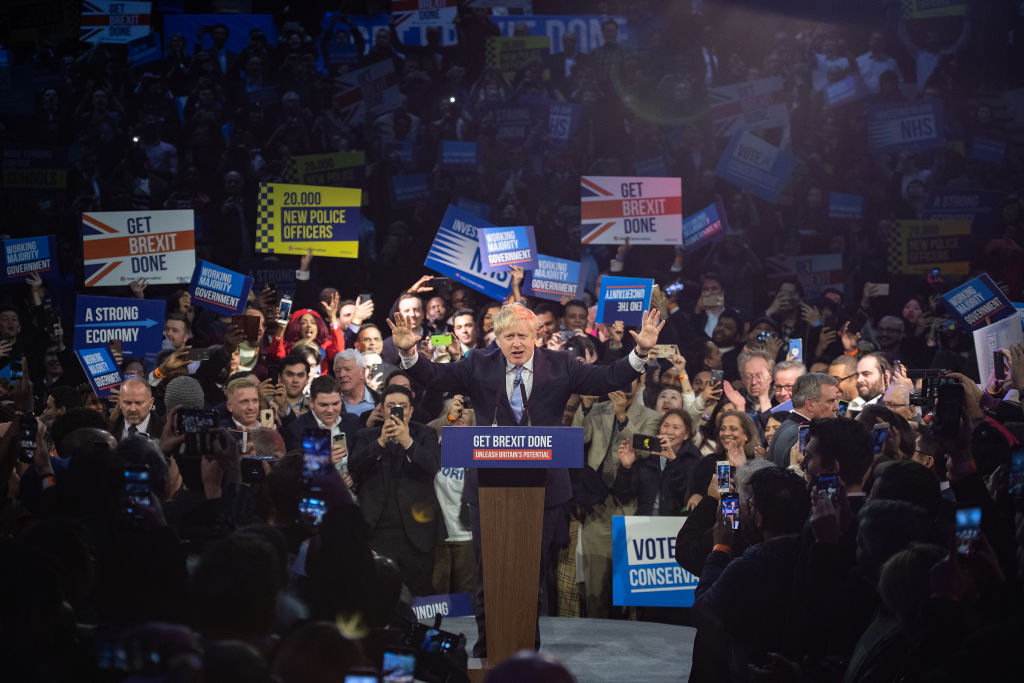Boris Johnson has won one of the most spectacular election victories in recent British political history. He has broken the deadlock that has gripped British politics since the 2017 election, winning a much larger majority than anyone expected. He is, currently, projected to have a majority of 68.
This victory means that the UK will leave the EU on the 31st of January. But it also means something else, and something that might turn out to be almost as important to the future of the country. This election has realigned British politics. The Tories have won Leigh, Workington, Wrexham, Ashfield, Bolsover, Darlington and a slew of other working class seats north of the Watford. At the same time, they have lost Putney and failed to regain Canterbury.
The Tories now represent far more seats in the North, the Midlands and Wales than they did before.

Britain’s best politics newsletters
You get two free articles each week when you sign up to The Spectator’s emails.
Already a subscriber? Log in








Comments
Join the debate for just £1 a month
Be part of the conversation with other Spectator readers by getting your first three months for £3.
UNLOCK ACCESS Just £1 a monthAlready a subscriber? Log in